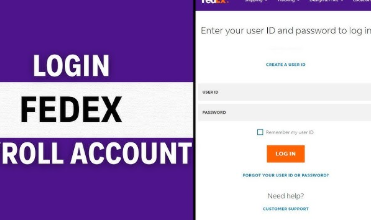Power Of Global Payments For Expansion Of Modern Businesses

Businesses today are no longer limited to geographical boundaries. From sourcing materials abroad, paying foreign freelancers, or venturing into new markets, global payments are now a basic need for modern business. For companies looking to grow, understanding global payment systems is not a choice; it’s a requirement.
What Are Global Payments?
Global payments define the movement of money among organisations in various nations. It encompasses anything from making invoices, paying vendors, to collecting funds from customers on other continents. As companies sell in more and more varied markets, facilitating the sending and receiving of money internationally, quickly, safely, and inexpensively, is essential to efficient operations.
Let’s understand why a global payment system is required in any business for its expansion.
The Business Case for Going Global
For B2B businesses, expansion into international markets equates to new customers, new talent, and new supply chain options. But such opportunities require smooth and secure payment systems. Excessive funding transfer delays, high currency conversion fees, or restricted access to local currencies can immediately impact cash flow and partner confidence.
An organised global payment solution not only does business with transactions; it does business with relationships. On-time payments earn trust with vendors and partners. Transparent fee models create trust. The more seamless your international payments, the easier your business growth.
Currency Conversion Without the Chaos
One of the major challenges in cross-border payments is managing foreign exchange (FX). Currency exchange can erode margins if not carefully managed. Conventional banking processes typically involve hefty FX markups and hidden charges, which unnecessarily increase the cost of cross-border transactions.
New solutions provide more transparency. Certain platforms provide competitive rates for FX and transparency of fees so that businesses are able to budget their finances without any unwanted surprises. Over time, this can deliver considerable savings in costs; particularly for businesses with a high volume of international transactions.
Speed and Efficiency Count
In B2B business models, timing is everything. Companies can’t wait for days for a cross-border transfer to settle. Fortunately, cross-border payment systems have developed. With local banking rails to tap into and more intelligent infrastructure, most providers now provide same-day or next-day international transfers in key currencies.
This increase in velocity not only lowers friction; it enhances cash flow and enables businesses to react quicker, whether it’s ordering at the last minute or paying a contractor across a different time zone.
See also: A Guide to Effective Tree Trimming Techniques for Healthy Growth
Handling Many Currencies with Ease
Keeping money in various currencies was a privilege reserved for giant multinational firms. Now, even small and medium-sized enterprises can keep accounts in various currencies. Businesses can now accept payments in the currency of their choice from a client and keep the money without converting it immediately.
This flexibility contributes to cost control. You decide when to exchange money using advantageous rates or pay out in the same currency directly, avoiding unnecessary conversion processes and costing yourself money in the process.
Local Presence Without a Local Office
One of the most common issues for companies expanding into new markets is opening local bank accounts. Regulations, documentation needs, and administrative obstacles can hamper expansion plans.
A number of global payments solutions can now enable businesses to accept local receiving accounts in their key markets (e.g., USD, EUR, GBP, or SGD) without physical presence. This provides the illusion of a local operation, which is able to enhance local trust with clients and partners as well as simplify collections.
Strengthening Compliance and Security
Cross-border payments include regulatory stipulations. Meeting international payment standards, anti-money laundering regulations, and compliance with local laws is critical.
Today’s payment providers are built to achieve these standards. Companies need to seek out partners who have a high regard for regulatory compliance and provide built-in capabilities such as payment tracking, digital audit trails, and verification processes. This not only safeguards the company but also provides a stronger sense of credibility with worldwide stakeholders.
Selecting the Proper Global Payment Partner
When there are as many choices to pick from, businesses need to consider their requirements before they can choose a global payment partner. Some things to consider include:
- Supported countries and currencies
- Transfer speed
- Fee transparency
- Account setup ease
- Compatibility with accounting software
- Security and regulatory standards
Final Thoughts
Whether making payments to foreign suppliers, receiving payments from customers abroad, or entering new markets, global payments are more than just a cost of business; they are an enabler of growth. And in today’s high-stakes business environment, growth is everything.





